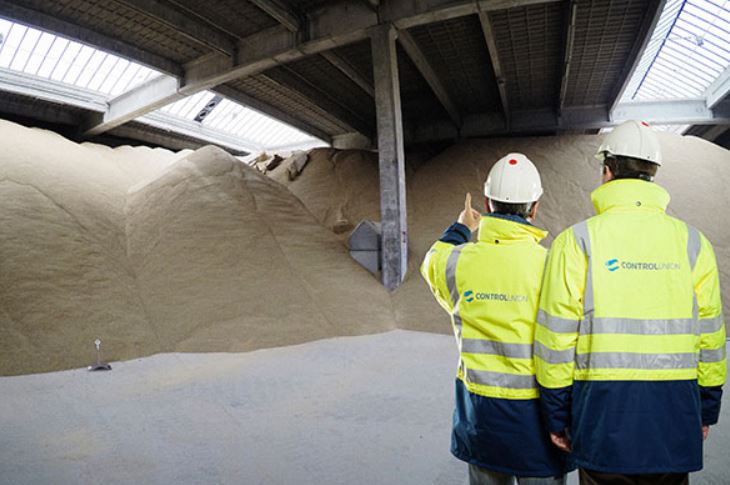Collateral: advantages and potential risks in sugar trade

Leveraging Collateral Services in the Sugar Supply Chain: Advantages and Potential Risks in the Sugar Trade
The sugar supply chain is a complex network that involves various stakeholders, including producers, traders, processors, and distributors. One crucial aspect of this industry is the use of collateral services, which provide financial support and risk mitigation throughout the trade process. Collateral services, such as the ones Control Union offers, enable participants in the sugar supply chain to access credit, manage price fluctuations, and secure transactions. This article shows some of the advantages of collateral services in the sugar trade while highlighting potential risks associated with their implementation.
Advantages of Collateral Services in the Sugar Supply Chain:
- Improved Access to Credit: Collateral services play a vital role in enhancing access to credit for participants in the sugar supply chain. By offering collateral, such as sugar inventories or production assets, traders and processors can secure loans or credit facilities. This access to credit empowers businesses to manage working capital requirements, invest in infrastructure, and expand their operations, thereby stimulating growth and driving innovation within the industry.
- Mitigation of Price Fluctuations: The sugar market is notorious for its price volatility, influenced by factors such as weather conditions, global demand and supply dynamics, and trade policies. Collateral services allow stakeholders to manage risks associated with price fluctuations. By pledging sugar as collateral, traders can secure favorable pricing terms and manage their exposure to market volatility. Additionally, collateral services enable the use of hedging mechanisms, such as futures contracts or options, to mitigate price risks effectively.
- Streamlined Supply Chain Operations: Collateral services facilitate the smooth operation of the sugar supply chain by providing financial stability to various participants. For instance, producers can obtain pre-harvest financing based on the value of their anticipated sugar crop. This early access to funds helps cover expenses related to farming, harvesting, and processing, ensuring a seamless supply of sugar. Similarly, traders and processors can leverage collateral services to ensure uninterrupted operations and timely delivery of sugar to end consumers. The constant monitoring of the crops in every stage also contributes tot he efficiency.
- Enhanced Risk Management: In addition to price volatility, the sugar supply chain faces risks associated with credit default, counterparty failure, and logistics disruptions. Collateral services offer risk management tools that help mitigate these challenges. Through collateralization, lenders have an added layer of security in case of default, reducing their exposure to credit risk. Moreover, collateral services provide mechanisms for monitoring and tracking inventory, minimizing the risk of fraud and inventory discrepancies.
“Inadequate storage conditions, such as exposure to moisture or pests, can lead to spoilage or degradation of the pledged sugar, reducing its value”
Potential Risks in the Sugar Trade:
- Counterparty Risk: While collateral services provide risk mitigation, there is still a potential for counterparty risk. If a counterparty defaults on their obligations, the lender may need to liquidate the collateral to recover their funds. However, fluctuations in sugar prices and market conditions can impact the value of the collateral, potentially resulting in a shortfall if the collateral’s worth is insufficient to cover the outstanding debt.
- Market Volatility: Although collateral services help manage price fluctuations, unexpected market shocks can still pose risks. Extreme price swings or unforeseen events such as natural disasters or political instability can impact the value of collateral and disrupt the balance sheets of participants in the sugar supply chain. Adequate risk assessment and robust contingency plans are crucial to mitigate these risks effectively.
- Storage and Quality Challenges: Collateral services often involve the physical pledging of sugar as collateral. This introduces challenges related to proper storage and maintaining the quality of the collateralized sugar. Inadequate storage conditions, such as exposure to moisture or pests, can lead to spoilage or degradation of the pledged sugar, reducing its value. Therefore, comprehensive collateral management systems and quality control measures are necessary to safeguard the collateral’s integrity. Control Union provides Stock Monitoring and Warehouse Inspection services to prevent loss of quality.
Conclusion
Collateral services play a pivotal role in supporting the sugar supply chain by providing access to credit, managing price volatility, and mitigating risks. The advantages of collateral services include improved access to credit, streamlined supply chain operations, and enhanced risk management. However, potential risks, such as counterparty risk, market volatility, and storage challenges, must be carefully addressed and managed to ensure the successful implementation of collateral services in the sugar trade. With proper risk assessment, robust collateral management practices, and contingency plans, the sugar industry can leverage collateral services effectively to fuel growth and strengthen its position in the global market. Control Union offers various Collateral Services and international experts to assist in keeping your trade promises.
Relevant collateral services

Start growing your business. Get in touch!
Find your local partner to help us understand how we can help you.




